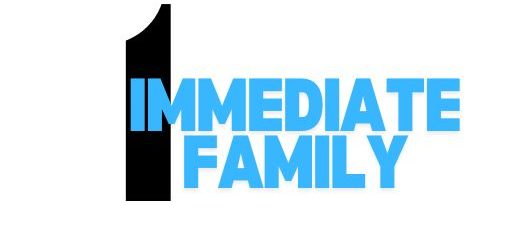Millions of dollars in cash flow through Las Vegas casinos every day, making them ideal targets for money laundering schemes. Accordingly, the gaming industry is tightly regulated and closely monitored by both federal and state agencies to ensure that casinos are not used to launder illegitimate funds.
But no system is perfect.
A series of recent high-profile incidents involving Las Vegas casino operators — including MGM Resorts International, Wynn Resorts and Resorts World Las Vegas — and alleged anti-money laundering compliance failures has brought increased attention to the role and responsibilities of casinos.
With authorities placing a seemingly renewed emphasis on financial compliance, Las Vegas casinos find themselves at the forefront of the AML effort, walking a fine line between accommodating big-spending clientele and meeting legal obligations.
And the stakes are high.
Experts say that in addition to protecting the long-term viability and reputation of the gambling industry, combating money laundering in casinos is critical to national security and the overall stability of the financial sector.
Federal government paying closer attention
Michael Beckwith, a former assistant U.S. attorney who served as chief of transnational organized crime and a current member of the Dickinson Wright law firm’s internal investigative practice, said it is clear there has been an “uptick in the number of investigations” into casinos by the federal government.
“The federal government is becoming more and more concerned over time as they look at their AML regime and they see massive gaps,” Beckwith said. “And so, while the federal government has already been there, has always kind of been there in the background, because of national security interests, it is becoming more of a focus.”
Casinos, due to the high volume of cash transactions, have historically been an attractive venue for laundering. The mob’s interest in the gambling business, particularly in Nevada, was a direct result of this simple fact.
Greg Brower, a partner with the Las Vegas-based law firm of Brownstein Hyatt Farber Schreck who previously served as the U.S. attorney for Nevada and a former chief compliance officer for Wynn Resorts, said “criminals with large amounts of cash,” have been trying to identify easy ways to launder money “since the beginning of organized crime, if you will.”
“Before casinos really became part of the anti-money laundering effort under federal law, casinos were seen as a potential way to launder without any sort of regulatory scrutiny,” he said. “I think criminals still see casinos as being kind of less rule bound or less strict with respect to AML rules and regulations and policies versus traditional banks, and so they continue to at least try to spend money or launder money in casinos. But increasingly that has become very difficult.”
Becky Harris, former chair of the Nevada Gaming Control Board and a distinguished fellow at UNLV’s International Gaming Institute, noted that while casinos are unquestionably a target of unlawful actors, gambling parlors are not inherently vulnerable.
“We know, statistically, that the most common targets for introducing illegitimate funds into legitimate financial systems are financial institutions,” such as banks, money services business and casinos,” Harris said. “So, there should not be a stigma attached to casinos with this idea of money laundering, because it could potentially happen in a lot of businesses, not just casinos.”
How is money laundered through casinos?
Simply put, money laundering is the process of disguising the origins of illegally obtained money to make it appear legitimate.
“The goal for the bad guys is they take their illegal money, put it into the system, namely the casino system, and then on the other end, they get their money out, or most of it out,” Brower said. “But it looks now like it was gambling winnings, and so it disguises the true nature of (the money’s origin).”
There are three stages to money laundering — placement, layering and integration — each of which can be accomplished via a casino.
An example of placement in a casino would include exchanging small-denomination bills for casino chips and gambling a minimal amount before cashing out with large-denomination currency. Another placement tactic would be a group of people converting small-denomination bills into chips and then giving the entire amount to one person who plays for a short time before going to the casino cage.
“The key that you’re looking for is a customer that comes in with a fairly significant amount of money, and they’re engaging in very little gambling,” Harris said. “It’s the appearance of gambling, but there’s no real significant gambling transactions that are taking place.”
Layering would expand on either of the placement examples by creating distance between the illegitimate funds through complex layers of financial transactions to obscure the source and ownership of the funds, Harris said. With a casino as only a single point along a convoluted path, layering could look like requesting a wire transfer of the “winnings” to an international account and quickly diverting the money to multiple accounts or buying a multimillion-dollar insurance policy and canceling it during the right to refusal period.
“The more financial transactions that take place, the more obfuscated the audit trail becomes, and it hinders law enforcement’s ability to track the money back to where it was acquired,” Harris said. “It would be folly to assume that the starting point of money laundering is a casino. The casino may just be one stop along the long trail of different financial transactions that are engaged in to obscure the audit trail.”
The final stage of money laundering is integration, which takes layered funds and injects them back into the legitimate financial system via an above-board transaction. While instances of integrating laundered money back into a casino are rare, one example might be using illegal funds to lease restaurant or retail space inside a casino.
Beckwith stressed that criminals, particularly those participating in an organized syndicate, are constantly trying to stay one step ahead of casino personnel and financial authorities by employing new methods.
‘Whoever is the most creative, often wins’
“The wonderful thing about the gaming industry is creativity and so whoever is the most creative, often wins,” he said, alluding to a few unnamed Las Vegas casino moguls. “And laundering is the same way. As long as you can conceal or hide the proceeds … the techniques are almost endless.”
Harris, the former gaming regulator, said that is why casinos must remain diligent and responsive.
“That’s why a compliance unit at a casino is just critical, because they’re the first line of defense,” Harris said. “They’re the ones that are providing the training to the frontline employees who are looking for suspicious activities. They’re looking for certain typologies that people engage in when it looks like they’re going to attempt to launder money.”
Know your customer
Brower said a key component to casino AML compliance is know your customer, or KYC as it is referred to in the gaming industry.
“Above certain (financial) thresholds, it’s incumbent upon casinos to know who the customer is in terms of their identity, where their money is coming from and act accordingly,” he said. “The law requires financial institutions of all types, including casinos, to have an effective anti-money laundering program so as to mitigate, to the extent possible, the opportunity for the bad guys to launder their money through otherwise legitimate financial institutions, like a casino.”
Nearly all of the recent incidents involving Las Vegas casinos and alleged anti-money laundering compliance issues stem from lapses in KYC protocols, including establishing a legitimate source of funds, as detailed in the unresolved disciplinary complaint against Resorts World Las Vegas issued by the Nevada Gaming Control Board in August.
Beckwith said recent events with Las Vegas casino operators underscore the need for independent testing of AML policies in all financial institutions. While unclear what that ultimately entails, Beckwith said it likely includes some level of collaboration among the government and the industry.
“There’s always a constant tension between federal and state regulators, but when they work together, it can be a very powerful thing,” he said, adding the “increased level of federal interest” is not going to go away.
Similarly, Brower said it is likely that casinos will continue to be the focus of financial scrutiny unless the industry makes a concerted effort to address the issues.
“It really does require an adequate devotion of resources and personnel. It requires the right kind of compliance culture within the organization,” he said. “It’s something that casinos have to take seriously.”
David Danzis can be contacted at [email protected] or (702) 383-0378. Follow AC2Vegas_Danzis on X.





